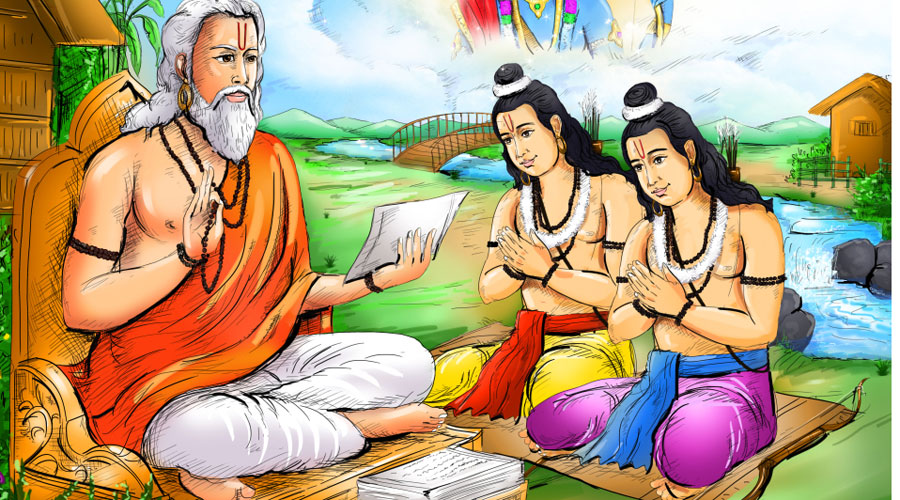Few doubt that Rabindranath Tagore could have been jailed as an “anti-national” in today’s India for calling nationalism “a great menace” that “has been at the bottom of India’s troubles”.
But what if the boot were on the other foot? Could Lord Ram himself be prosecuted for the murder of King Bali of Kishkindha under the judicial system of modern-day India?
Could Sita seek divorce and maintenance under the Hindu Marriage Act, 1955, after being “abandoned” by Ram? And what defence could Ram offer if summoned to the courts?
All these points have been raised and discussed in an amusing new book, Ramayana Revisited: An Epic Through a Legal Prism, co-authored by retired journalist Anil Maheshwari and Supreme Court advocate Vipul Maheshwari. Published by Bloomsbury, the volume hit the stands recently.
Although mythologist Anand Neelakantan has lauded the book for giving “a balanced perspective of the Ramayana as each character argues his or her points”, the authors have issued a disclaimer, perhaps as a shield against possible charges of blasphemy from Hindutva advocates.
“All dramatisations are fictional and not intended to deal with, defame or hurt any persons or person’s family, dead or alive,” they have written.
The book has conjured up the possibility of an FIR being lodged against Ram to “investigate the cold-blooded murder of Bali, King of Kishkindha”.
“It is a punishable offence to physically eliminate Bali, and that too by hiding behind a tree, while he was engaged in a fierce combat with his brother, Sugriva,” says the imaginary chargesheet.
“Therefore we believe that Vali’s assassination was nothing but wanton disregard (of) all the established principles of dharma. We request the court to hold Rama answerable for his conduct u/s (under section) 302 of the IPC (murder).”
The Maryada Purushottam’s defence is eminently pre-modern but carries shades of present-day international diplomacy: “We were merely upholding the promises made to Sugriva. (The) doctrine of necessity is a principle which authorises kings and princes to act in a particular manner. It is not true that I was no longer a prince and did not enjoy the authority of the State….
“As the prince of Ayodhya, I cannot be held responsible when engaged in the State’s affairs. Everything I did was to search for my queen, Sita, and the court has no jurisdiction against it. Therefore, I ask, not urge, (you) to drop these proceedings at once.”
The authors have desisted from passing any verdict on the rival contentions, leaving the matter to the reader.
It’s the section on Vibhishan that perhaps resonates the most with contemporary relevance.
The prosecution argues that Vibhishan’s dharma required his presence in — and complete loyalty to — the kingdom of Lanka, especially during such a vulnerable period, and that his duties cannot be conflated with Ram’s dharma of fighting for his wife and his honour.
“Therefore we request this court to punish Vibhishana under Section 121 and 121A of the IPC (sedition) and under Section 3 of the Official Secrets Act dealing with penalty for spying, etc,” the prosecution says.
Vibhishan’s defence seems to mirror the Tagorean principle that “patriotism can’t be our final spiritual shelter” — a stand the poet might not get away with today.
Ravan’s brother says he had simply joined the forces of dharma against the corrupt forces of Lanka.
“I believe that I acted in favour of the State of Lanka. I managed to preserve some assets, wealth and warriors to rebuild Lanka, subsequently,” he pleads.
“The decimation of the ruling elite of Lanka was necessary for further progress of the country.”











